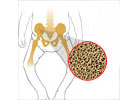Fortifying tea with folate and vitamin B12 may reduce the high levels of anemia and neural tube defects among the Indian population.
- India accounts for a poorly balanced diet among most women of childbearing age
- Tea is served as a potent beverage with its loaded antioxidants to replenish the body
- Fortifying tea with folate and vitamin B12 may reduce the high levels of anemia and neural tube defects among the population
Read More..
Burden of Vitamin Deficiency
India accounts for a poorly balanced diet among most women of childbearing age. This results in chronic folate and vitamin B12 deficiencies. To ward off these defects, several countries have successfully fortified flour with folate at the national level. But India faces difficulty in implementing the strategy due to logistical issues. Around 70% (650,000) of the population lives in rural villages where the diets vary as the processing and purchasing of cereal grain is managed locally according to cultural, religious, and ethnic differences and beliefs.Impact of Vitamin B12 and Folate
Vitamin B12 and folate (Vitamin B9) are responsible for the proper functioning of the red blood cells (RBCs), repair tissues & cells, and synthesize DNA in the body. RBCs are vital for carrying oxygen throughout the body via a protein called hemoglobin.Deficiency of Vitamin B12 and folate results in abnormally larger production of RBCs that impairs its function and results in anemia.
Anemia is characterized by low levels of hemoglobin in RBCs. Apart from anemia, the deficiency of vitamin B12 and folate may also result in extreme fatigue & muscle weakness, neuropathy, sores and ulcers in the mouth, and cognitive problems.
Essence of Tea
One of the most common beverages drunk in India is tea. Four states are well known for the processing of this beverage at a large scale. They are the highlands of Assam, West Bengal, Tamil Nadu, and Kerala.Tea is loaded with antioxidants that have replenishing effects on the body. The study authors thereby speculated that the fortification of this beverage, a single cup daily with necessary vitamins may help overcome the growing burden of these vitamin deficiencies.
Study Data
The study team analyzed 43 young women who were divided into three groups from Sangli in the state of Maharashtra with an average age of 20 years.The teabags were laced with therapeutic doses of 1 mg folate along with 2 choices for Vitamin B12 – group 1 had 19 women who were given 0.1 mg vitamin B12 and group 2 had 19 women who were given 0.5 mg of vitamin B12. Group 0 had 5 women who were asked to use unfortified teabags for 2 months in a daily cup of tea.
The participants had their serum vitamin and hemoglobin levels measured before and after the study period. It revealed an increased rate of anemia with low to normal serum folate and below-normal serum vitamin B12 levels at the beginning of the study.
Effect of Fortified Tea
It was found that those women, who had these vitamin deficiencies, demonstrated 1.26 ng/ml significant increases in serum folate levels of 8.37 ng/ml and 6.69 ng/ml in groups 1 and 2, respectively after 2 months, when compared to that of women in group 0.More than half of the women in group 1 and two-thirds of those in group 2 revealed an increase in serum vitamin B12 levels to more than 300 pg/ml. There was also an average increase of hemoglobin levels by 1.45 g/dl in group 1 and by 0.79 g/dl in group 2.
"Tea is an outstanding scalable vehicle for fortification with folate and vitamin B12 in India, and has the potential to help eliminate haematological and neurological complications arising from inadequate dietary consumption or absorption of folate and vitamin B12," states the study.
The study thereby suggests that a daily therapeutic dose of folate and vitamin B12 can be included with the fortified tea for all those with folate/vitamin B12 deficiency. A maintenance dose can be ensured among the mass population (hundreds of millions) with poor nutritional value in the diet.
However, larger comparative data are required to confirm the present results.
Manage Vitamin B12 and Folate Deficiency
- The estimated prevalence of a B12 deficiency in people under age 60 is 6% in the U.S. and United Kingdom and 20% in people over age 60.
- Generally, injections of vitamin B12 (Hydroxocobalamin) are administered on alternate days for 2 weeks to treat vitamin B12 deficiency anemia.
- Folic acid tablets are prescribed for spiking up the folate levels usually for 4 months.
- Consume a diet that meets the recommended intakes of these vitamins to avoid complications.
- A vegan die may lack sufficient B12 levels. The rich sources of these vitamins include meat, salmon and cod, eggs, milk, dairy products, yeast extract, soy products, and fortified breakfast cereals
- Rich sources of folate are broccoli, brussels sprouts, asparagus, peas, chickpeas, and brown rice.
- All women of childbearing age must include folic acid supplements (400 µg/day) to avoid neural tube defects in developing fetuses.
- Ensure daily vitamin supplements for B12 (2.4 µg/day) and folate if dietary requirement is unmet.
References:
- Vitamin B12 or folate deficiency anaemia - (https://www.nhs.uk/conditions/vitamin-b12-or-folate-deficiency-anaemia/)
- Vitamin B12 Deficiency: Recognition and Management - (https://www.aafp.org/afp/2017/0915/p384.html)
- Vitamin B12 and Folate Deficiencies - (https://labtestsonline.org/conditions/vitamin-b12-and-folate-deficiencies)
- Conclusions of a WHO Technical Consultation on folate and vitamin B12 deficiencies - (https://www.who.int/nutrition/publications/micronutrients/FNBvol29N2supjun08.pdf)
Source-Medindia















